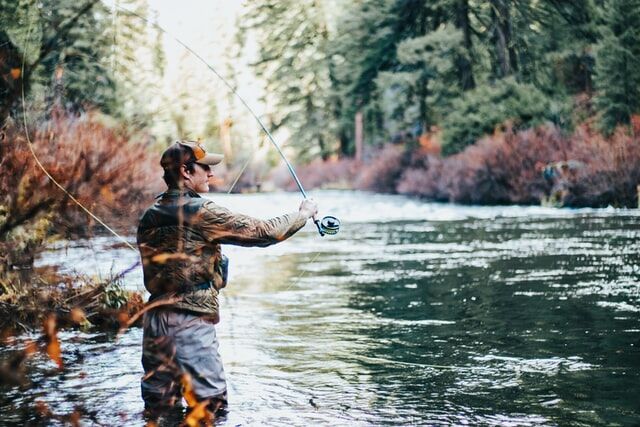
Hunting is a sport that requires skill and patience. It's not something you can jump into and expect to succeed. However, it becomes much easier for anyone to learn how to hunt well with the right advice! This article will discuss some of the best tips from professionals so you can improve your hunting techniques and become an even better hunter.
What To Wear
There are two different options for what you should wear when going hunting. You can choose between camouflage or blaze orange, which is typically the more popular choice because it will make you stand out among other hunters and animals in a field of browns and greens.
If you're wearing camouflaged clothes, try not to wear black-and-white patterns that may blend into everything around it; any colors like green or tan help break up the pattern, so they are less likely to catch an animal's eye as much. If you're mostly wearing white clothing, paint yourself with light olive drab paint for maximum coverage instead of fabric paints. Also, be sure not to have any reflective materials or anything that will make a lot of noise, like bells on your coat.
For blaze orange clothing, be sure not to wear black patterns as they are harder for animals to spot; stick with stable versions of the color. If you're wearing camouflage and want something more eye-catching over it, try bright blue jeans or a red ball cap - these will contrast well against green backgrounds and help draw attention from hunters when things get crowded.
Understand What Season You're Hunting In
In hunting season, you want to think about how many animals live near each other, so they don't have difficulty finding mates.
In the spring, there's more mating going on, and females become pregnant, which means males will abandon their territory and go looking for another one where they may not necessarily need as much prey. Hunting during this period results in hunters missing shots or simply wasting ammo since bucks won't come close enough due to territorial boundaries being pushed further by competing for male deer trying aggressively to take what used to be theirs from others of their species.
Be Aware of Your Surroundings
Don't just focus on the animal you're hunting. Pay attention to your surroundings and make sure nothing is going to sneak up on you. Would you mind taking a moment before shooting an animal that may not be what it appears to be? Consider investing in a thermal scope because these Thermal Scopes are an excellent way to spot animals at night or through thick brush. So use a rifle with a degree to shoot small game-like rabbits, which are often difficult to see and don't always give you the best opportunity for an accurate shot.
Know Your Prey
Make sure you understand the prey before hunting it. Know where it lives, what it eats, and how well you can find the prey. You should also know if there are any diseases such as rabies or ticks that might be present in your area. If the animal is endangered, then you may not want to hunt them at all because of strict hunting regulations on these particular animals.
Some people will even go so far as to ask for permission from law enforcement before they start their hunt. In some cases, an individual permit must be obtained through a qualified taxidermist or wildlife biologist for someone to keep this type of game animal legally.
The Right Weapon
Hunters have various weapons to choose from, such as handguns, rifles, shotguns, and bows. Understand the pros and cons of each weapon type before making your purchase decision, so you can find what's best for your personal needs.
For example, a shotgun can be the perfect choice for someone who lives in an area with dense brush and small game. Or A hunter may prefer to use a handgun if they want something more accessible to carry while on foot during hunting season.

In addition, some weapons are better suited for certain game animals, including deer, elk, and bears which means you should research these types of prey thoroughly before heading out into the field.
The type of weapon that works best will depend significantly on your personal needs and what environment you'll most often hunt in. Understanding this information is vital when choosing the right gun or other equipment to be confident in your purchase.
The proper weapon, the perfect camouflage, and a clear understanding of how your prey thinks are all critical factors in hunting success. A good hunter should also be aware of seasonal changes - what's appropriate to wear at different times of the year.




(0) comments
We welcome your comments
Log In
Post a comment as Guest
Keep it Clean. Please avoid obscene, vulgar, lewd, racist or sexually-oriented language.
PLEASE TURN OFF YOUR CAPS LOCK.
Don't Threaten. Threats of harming another person will not be tolerated.
Be Truthful. Don't knowingly lie about anyone or anything.
Be Nice. No racism, sexism or any sort of -ism that is degrading to another person.
Be Proactive. Use the 'Report' link on each comment to let us know of abusive posts.
Share with Us. We'd love to hear eyewitness accounts, the history behind an article.